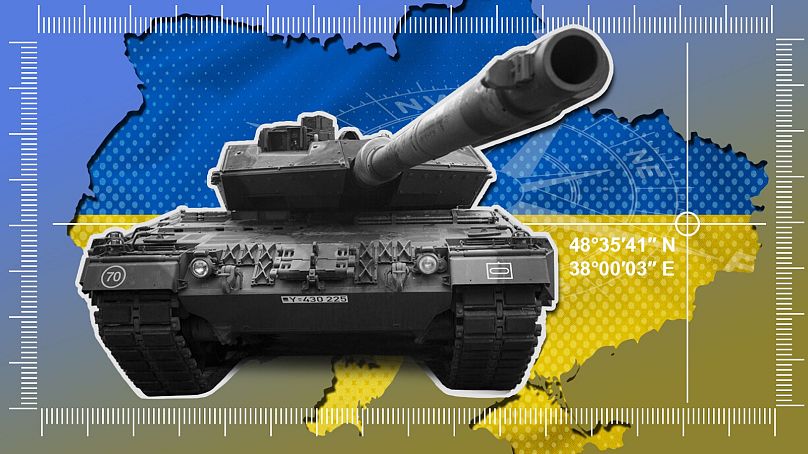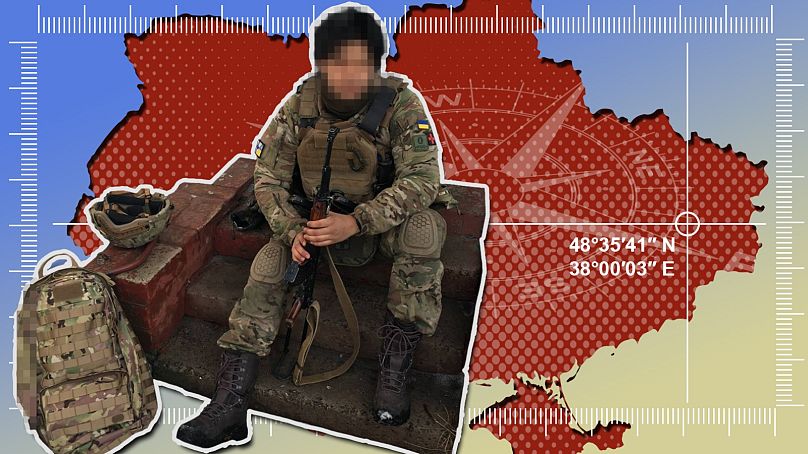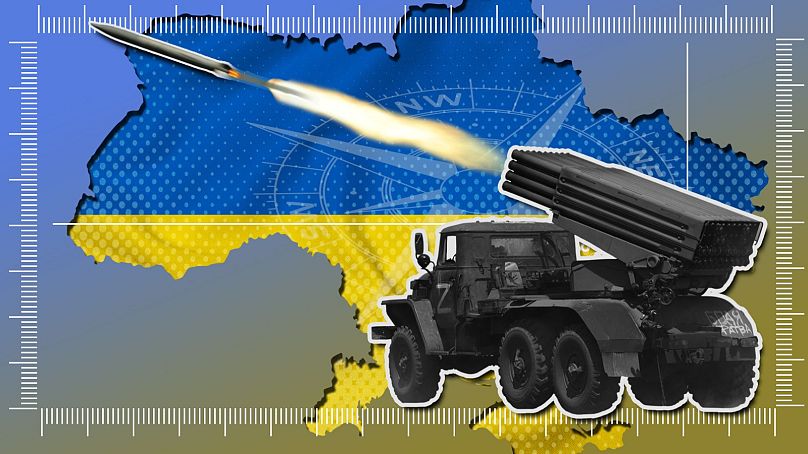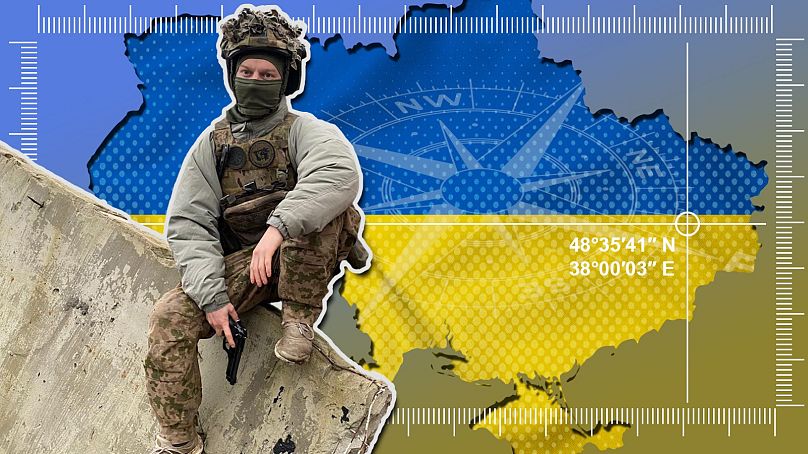This is the story of Hobbit and Mariachi, two Finns who volunteered to fight in Ukraine, where the brutal Russian invasion strikes a chord close to home.
It's March 2022.
 ADVERTISEMENT
ADVERTISEMENT
 ADVERTISEMENT
ADVERTISEMENT
Russian forces have besieged the Ukrainian city of Mariupol, shelling it from warships in the Azov Sea. Kremlin troops are still dangerously close to the capital Kyiv, while the first horrific accounts of mass killings are starting to emerge from Bucha.
As the war unfolded around him, Hobbit arrived in Ukraine.
"In the beginning, it was all new to me, and I was very nervous. And I was sure after one or two months there wouldn't be a government left."
Hobbit - who only uses his callsign not his real name for operational security reasons - is one of the estimated hundred Finns, among hundreds of other foreign fighters, who put their lives on hold to take up arms against the Russian invaders.
For many people in Finland, the war in Ukraine has echoes of their own country's not-so-distant past, when a Soviet false-flag operation in November 1939 saw Stalin's forces shell a border post and blame it on the Finns as a pretext to launch a ground offensive.
Russia's famed composer Dmitri Shostakovich was commissioned to write new music, which would be played as victorious Soviet troops marched through the streets of Helsinki to install a puppet government - a tale that chimes with reports from the current war that Russian forces had been told to pack their dress uniforms for a victory parade in Kyiv.
At the end of the short 105-day Winter War, Finland had inflicted heavy casualties on the Soviets but was ultimately forced to give up territory and pay reparations. The outcome, and the tens of thousands of internally displaced people who moved from annexed Karelia into Finland proper, makes the modern-day situation in Ukraine seem chillingly familiar to many Finns.
"To be honest I don't know how it happened exactly but I was watching the war, and then I started to feel that maybe I should do something, and I was sitting at home enjoying the little things in life like cinnamon buns and IPA beer," Hobbit tells Euronews.
"I thought why am I staying at home and enjoying this without any care in the world when 18-year-olds in Ukraine have to go to war without much training: This is the rifle, this is how you shoot, you are good to go. But I have training."
Like most Finnish men, Hobbit had served his conscription in the military although he says he didn't much enjoy it at the time, with too many rules and restrictions.
Whether nine months of basic training really prepared him for war is a different question.
"No training can be the same as war of course. But I had an advantage because the Finnish army has always trained for combat against Russia, so I was taught how to survive. That is also one of the reasons why I felt I should come because we have knowledge to share."
Hobbit's family was less sure he should volunteer in Ukraine. "They didn't like it at all. But in the end we discussed, and I expressed my views. I will be disappointed in myself if I do not go. It's my life. If I die it's my choice."
It's September 2022.
Russia illegally annexes Donetsk, Kherson, Luhansk and Zaporizhizhia as Vladimir Putin announces a "partial mobilisation" of 300,000 troops to fight in Ukraine. It's a further sign that things are not going the way the Kremlin planned, and the call-up triggers a mass exodus of military-age Russian men trying to escape conscription.
Hobbit is on the front line of fighting in the small town of Petropavlivka, near Kupiansk.
Along with another Finnish volunteer, he's assigned to fire support.
"I had a heavy machine gun stolen from a Russian tank, and my job was to move and cover the advance through the town," he recalls.
The pair moved into position near a crossroads, where advancing Ukrainian forces would be exposed in an open area. Hobbit had just put his gun down into a makeshift firing position when they spotted a Russian BMP-2M - an infantry fighting vehicle - a few hundred metres away.
"I thought there was a slight chance to hit some critical system, to disable the BMP. Or if I hit it from the side, rounds might actually go through, so I started blasting the BMP and managed to empty three belts of ammunition into the vehicle and the dismounting infantry."
Hobbit was firing the third belt when the bullets zinged through the air. He'd been so focused on the main target that he didn't notice the Russian sniper. One shot hit him low in the calf, embedding deep into his foot, shattering bones and severing tendons.
Video from a body-worn camera shows the action in real time that day, and captures the moment when Hobbit is hit. He screams in agony, and swears in Finnish, a language well suited to profanities. His battle buddy calls for a medevac and soon another foreign fighter shows up in an SUV. Hobbit is unceremoniously bundled into the back, his foot bandaged, as he's driven away.
After a month in a Ukrainian hospital, he is transferred to Finland where his family visits him for the first time since he was injured.
"They were shocked. There was not many words spoken, but many tears."
If Hobbit was one of the first Finnish volunteers to show up in Ukraine, then Mariachi is one of the newest. He's only been in the country a few months.
The nickname, he says, is a nod to his Latin American heritage.
Studying abroad, the 22-year-old was helping out with pro-Ukraine events on campus but knew he wanted to do more to help - a lot more.
"It was my second year at university and I could not focus on anything. I was in school, but in my head, I was browsing the news about what was happening at the front. It was the beginning of last summer I decided I wanted to go. That's why it took me a long time to get here, I had to prepare."
He first floated the idea of going to Ukraine with his dad five months before finally moving.
"I told him what was on my mind, but he didn't take it that well. I told my friends about one month before. They tried to stop me, and persuade me not to go. That's a sign you have good friends. Nobody told me it was a good idea but I wouldn't be here if I had listened to them," Mariachi says from his base outside Kyiv, where he's training with a reconnaissance platoon.
Unlike the initial waves of foreign volunteers who arrived haphazardly and either served with the International Brigade or operated more independently, Mariachi is serving directly with a Ukrainian unit.
"Ukrainian commanders want good international soldiers in their units, and my commander has been actively recruiting Finnish soldiers here and reservists back in Finland."
The advantages are that Ukrainian units get new soldiers who already have more training than Ukrainian recruits have time for. "These guys are battle-hardened, they know how to function out there in the trenches, but they're civilians who became soldiers out of necessity, they're not trained army men. The average Ukrainian soldier doesn't get much training time."
One thing Mariachi and the other Finnish fighters in Ukraine have come to rely on is the enviable network put in place back home to support them.
Kasper Kannosto from the Your Finnish Friends charity explains they've bought more than €350,000 of supplies since 2022, and received material donations like cars and equipment worth €100,000.
On the shopping list has been defensive equipment, night vision goggles, cold weather clothing, socks, generators, pick-up trucks, vans and tools.
"We include Finnish chocolate and coffee in the packages," he adds.
Mariachi is waiting on a particular brand of boots he likes, which should soon arrive via the Helsinki-Kyiv supply pipeline, and describes the service as "crucial" in providing Finnish fighters with the equipment they need.
"I'm serving in a recon platoon and if you don't have night vision goggles you're fucked. That's the reality here. And even a good, cheaper pair of night vision headsets can cost €4,500 or €5,000 which is three to four months of active pay," he says.
It's March 2023.
Bitter fighting rages in the eastern city of Bakhmut, with casualties so high it earns the grim nickname of 'meat grinder'. Ukraine gets its first delivery of Western heavy tanks: Challengers from Britain and Leopards from Germany, as Vladimir Putin says he plans to move tactical nuclear weapons into Belarus.
Hobbit is back in Ukraine as well, although his foot is still not healed so he needs a stick to walk around, which confines him to a desk job in logistics for months at a time while he rehabs his injury to get back in fighting shape.
It takes him another six months before he's running again, and when he can do 5km he's deployed near Bakhmut - a ruined city where 'success' is measured house by house and village by village. Tiny incremental gains that do little but sap morale and increase the body count on both sides.
It's October 2023.
On this mission, Hobbit is the squad leader of a machinegun team, assaulting south of Bakhmut. They're in the treeline, advancing towards enemy positions when Russian artillery hones in on them.
"Our whole assault element got hit by artillery, just me and a couple of others were uninjured," he recalls flatly.
"The assault was cancelled and we spent the next six or seven hours evacuating the wounded. When we went back for the last wounded guy we picked him up on the stretcher and artillery hit next to us."
Hobbit was injured for the second time, shrapnel in his shoulder and arm. They couldn't move to safety, or move the last badly injured soldier, because of the incoming Russian artillery fire. Stuck in a foxhole, they waited for hours until they were finally able to get out.
After a month in hospital, Hobbit requested a transfer to a Ukrainian unit but was assigned as temporary platoon leader in the meantime. "I lasted only three weeks in that role, not a great job. There was very little sleep and a lot of stress and responsibility at least with regards to the Bakhmut fighting."
"I ended up just crying on my last day, that I can't do it any more. Luckily I got some time off."
It's February 2024.
The conflict has largely ground to a halt, with Russian and Ukrainian forces digging into entrenched positions. The war has reached increasingly beyond Ukraine's borders, with Russian oil refineries targeted by Kyiv's drones, while Western countries hesitate to send more military aid which is badly needed by soldiers on the front lines.
"I feel the impact of diminishing support in the last couple of months. Germany is holding back its Taurus cruise missiles, and Europe is not giving as much aid as they should," says Hobbit.
"In the beginning, we were so outnumbered by the Russians that when we saw observation posts and called in artillery, we didn't have shit."
"The Kharkiv offensive changed all that, we came level with the Russians. But in the last month it's back the other way again, Russians hitting us with more artillery," he says.
So how long does he plan to stay in Ukraine, risking his life for a foreign country, swerving away from death each time it approaches head-on?
"I hope I won't be here forever. But definitely until victory."
"The whole idea of a normal life seems impossible now. It's hard to imagine a life after this."
"The only thing I can imagine is a party on the day when we win. But what comes after I don't know. It's just a cloud."














